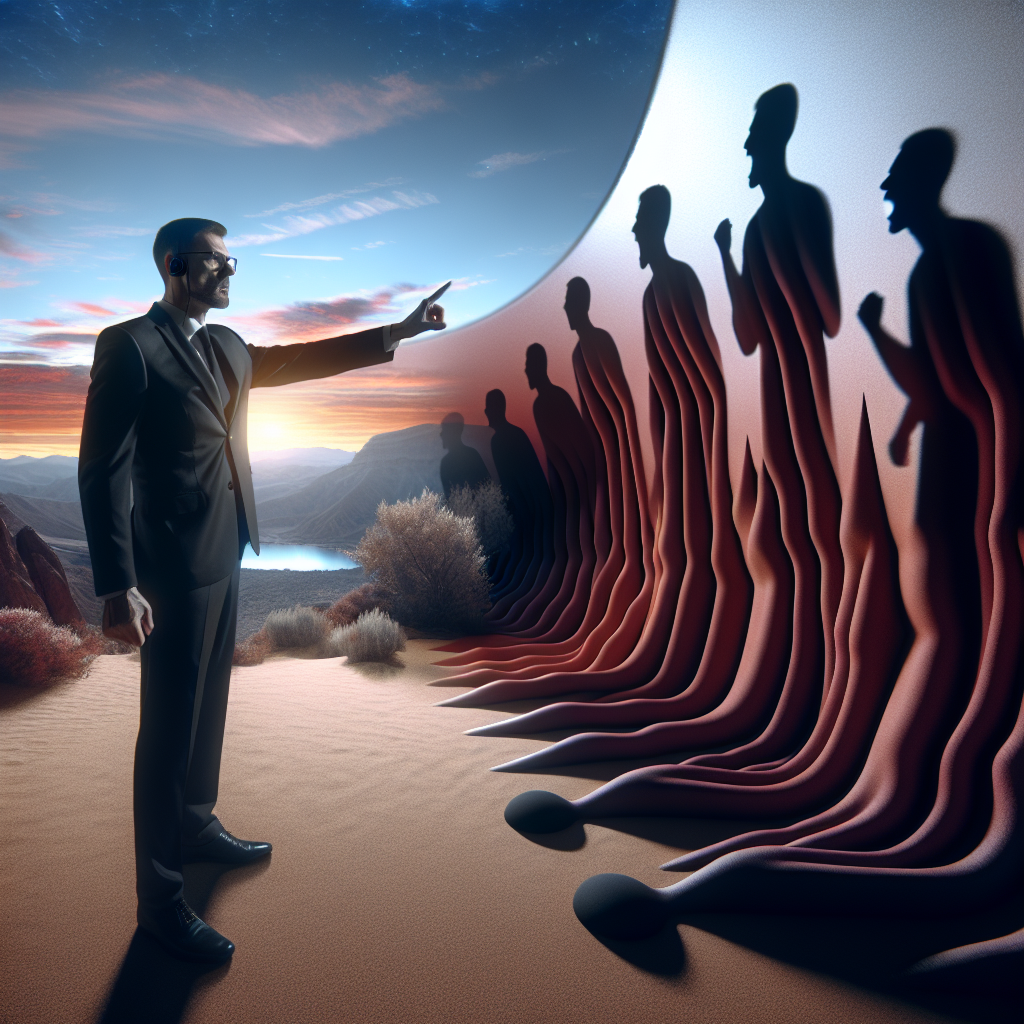Gregg Popovich doubles down on chiding ‘hateful’ boos

Popovich’s Stance on Fan Behavior
San Antonio Spurs head coach Gregg Popovich has never been one to shy away from speaking his mind, especially when it comes to issues he feels strongly about. Recently, Popovich made headlines for his comments regarding the behavior of fans at NBA games. In a post-game press conference, Popovich expressed his disappointment with the boos directed at players during games, calling them “hateful” and “ugly.”
Popovich’s stance on fan behavior is not new. He has been a vocal critic of fans who cross the line with their behavior for years. In a league where players are often subjected to taunts and insults from the stands, Popovich has consistently spoken out against such behavior, emphasizing the need for respect and civility in sports.
The recent incident that prompted Popovich’s comments occurred during a game between the San Antonio Spurs and the Brooklyn Nets. As the Nets’ Kyrie Irving stepped to the free-throw line, he was met with a chorus of boos from the crowd. Popovich, who has a close relationship with Irving, took issue with the fans’ reaction, calling it “disgusting” and “unacceptable.”
Popovich’s comments sparked a debate among fans and analysts, with some agreeing with his stance and others defending the right of fans to express themselves however they see fit. However, Popovich remained steadfast in his position, doubling down on his criticism of the behavior he witnessed at the game.
For Popovich, the issue goes beyond just one incident. He sees it as part of a larger trend of disrespect and incivility in society, one that he believes has no place in sports. In his view, sports should be a place where people can come together to enjoy a game and support their teams, without resorting to hateful or abusive behavior.
Popovich’s comments have reignited a conversation about fan behavior in sports, with many calling for a more respectful and inclusive environment at games. Some have even suggested implementing stricter measures to curb unruly behavior, such as ejecting fans who engage in taunting or harassment.
While Popovich’s stance may be controversial to some, it is clear that he is speaking from a place of genuine concern for the well-being of players and the integrity of the game. As a coach who has been in the league for over two decades, Popovich has seen firsthand the impact that fan behavior can have on players, both mentally and emotionally.
In the end, Popovich’s message is a simple one: treat others with respect and kindness, both on and off the court. While it may be easy to get caught up in the heat of the moment during a game, it is important to remember that there are real people on the receiving end of those boos and taunts. By fostering a culture of respect and civility, we can create a more positive and inclusive environment for everyone involved in sports. And perhaps, as Popovich suggests, we can all learn to be a little kinder to one another in the process.
Impact of Booing on Players

San Antonio Spurs head coach Gregg Popovich is known for his no-nonsense approach to coaching and his willingness to speak out on social issues. Recently, he made headlines for his comments on the negative impact of booing on players during games. Popovich has been vocal about his disdain for fans who boo players, calling it “hateful” and “disgusting.”
Popovich’s comments come at a time when booing has become a common occurrence at sporting events. Fans often use booing as a way to express their displeasure with a player’s performance or behavior. However, Popovich believes that booing can have a detrimental effect on players’ mental health and well-being.
In a recent interview, Popovich stated, “Booing is a hateful thing. It’s a way to express your feelings, but it’s a pretty aggressive, hateful feeling. It’s not something that’s going to help anybody. It’s not going to help the players. It’s not going to help the fans. It’s not going to help anybody.”
Popovich’s comments have sparked a debate among fans and sports analysts about the impact of booing on players. Some argue that booing is just part of the game and that players should be able to handle criticism from fans. Others believe that booing can have a negative effect on players’ confidence and performance.
Research has shown that negative feedback, such as booing, can have a detrimental effect on an individual’s self-esteem and motivation. When players are booed by fans, it can lead to feelings of shame, embarrassment, and self-doubt. This can impact their performance on the court and their overall mental well-being.
Popovich’s comments have shed light on the importance of creating a positive and supportive environment for players. Instead of booing, fans can show their support for their team by cheering them on and encouraging them to do their best. This can help boost players’ confidence and motivation, leading to better performance on the court.
In addition to the impact on players, booing can also have a negative effect on the overall atmosphere of the game. When fans boo players, it can create a hostile and tense environment that detracts from the enjoyment of the game. This can lead to increased tension between players and fans, as well as between fans themselves.
Popovich’s comments serve as a reminder that sports should be a positive and uplifting experience for everyone involved. Instead of focusing on negativity and criticism, fans should strive to create a supportive and encouraging environment for players. By showing respect and appreciation for the hard work and dedication of athletes, fans can help create a more positive and enjoyable experience for everyone.
In conclusion, Gregg Popovich’s comments on the impact of booing on players have sparked an important conversation about the role of fans in sports. Booing can have a detrimental effect on players’ mental health and performance, and it is important for fans to show their support in a positive and constructive way. By creating a supportive and encouraging environment for players, fans can help enhance the overall experience of the game for everyone involved.
Addressing Hate in Sports
San Antonio Spurs head coach Gregg Popovich is known for his outspoken nature and willingness to address social issues both on and off the basketball court. Recently, Popovich made headlines for his comments regarding the boos directed at players during the Tokyo Olympics. In a press conference, Popovich expressed his disappointment in the behavior of some fans, calling the boos “hateful” and “disgusting.”
Popovich’s comments come at a time when the sports world is grappling with issues of racism, sexism, and other forms of discrimination. The rise of social media has made it easier for fans to voice their opinions, but it has also provided a platform for hate speech and vitriol. Popovich’s decision to speak out against this behavior is a reminder that sports should be a place of unity and respect, not division and animosity.
While some may argue that booing is a natural part of sports and a way for fans to express their displeasure with a player or team, Popovich believes that there is a line that should not be crossed. In his view, booing should be reserved for on-court performance, not personal attacks or hateful language. By calling out this behavior, Popovich is setting a standard for how fans should conduct themselves at sporting events.
Popovich’s stance on this issue is not new. Throughout his career, he has been a vocal advocate for social justice and equality. He has used his platform as a coach to speak out on issues such as racial inequality, police brutality, and LGBTQ rights. By addressing the boos at the Olympics, Popovich is continuing his legacy of standing up for what is right and calling out hate when he sees it.
In the world of sports, where competition and passion often run high, it can be easy for fans to forget that there are real people on the receiving end of their cheers and jeers. Popovich’s comments serve as a reminder that athletes are not just performers, but human beings with feelings and emotions. By treating them with respect, fans can create a more positive and inclusive environment for everyone involved.
Popovich’s words have sparked a conversation about the role of fans in sports and the impact of their behavior on players. Some have defended the right of fans to express themselves freely, while others have called for a more respectful and civil atmosphere at sporting events. Regardless of where you stand on this issue, it is clear that Popovich’s comments have struck a chord and are forcing people to think about the kind of culture they want to see in sports.
As the head coach of one of the most successful teams in NBA history, Popovich has a platform and a voice that carries weight. His willingness to speak out on controversial issues has earned him respect and admiration from fans and players alike. By doubling down on his criticism of “hateful” boos, Popovich is sending a message that hate has no place in sports and that everyone deserves to be treated with dignity and respect.
In conclusion, Gregg Popovich’s comments on the boos at the Olympics have sparked a much-needed conversation about the role of fans in sports and the importance of creating a positive and inclusive environment for all. By speaking out against hate and discrimination, Popovich is setting a standard for how fans should conduct themselves at sporting events. His words serve as a reminder that sports should be a place of unity and respect, not division and animosity.

